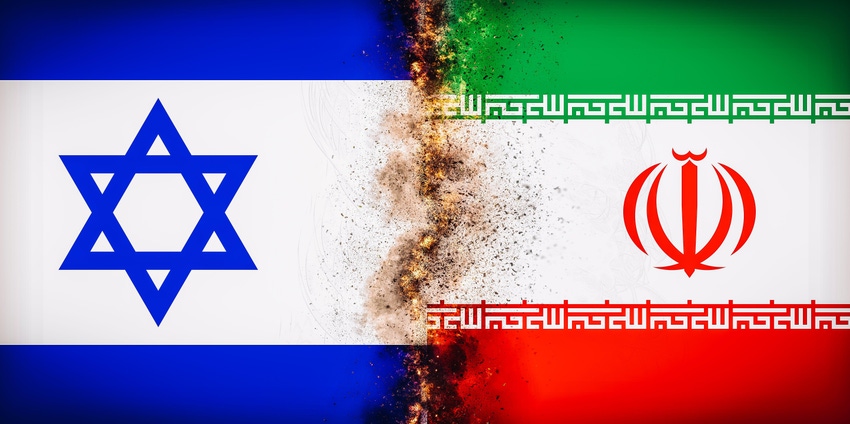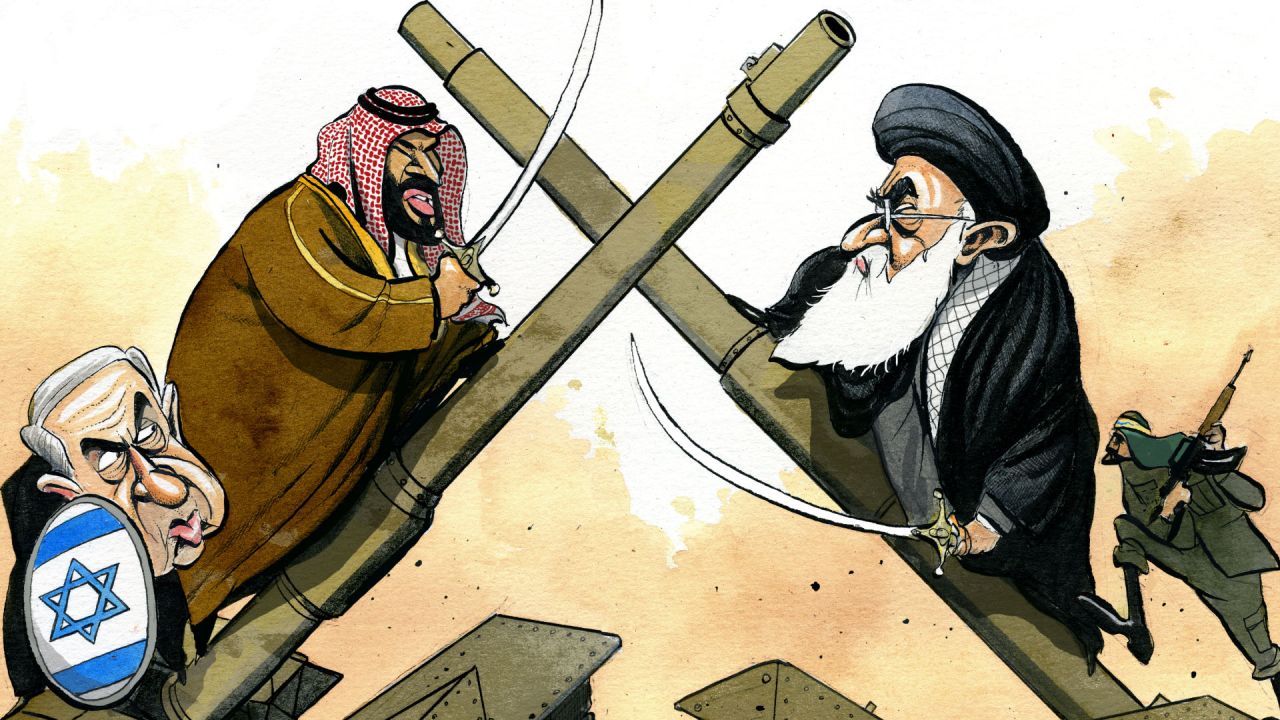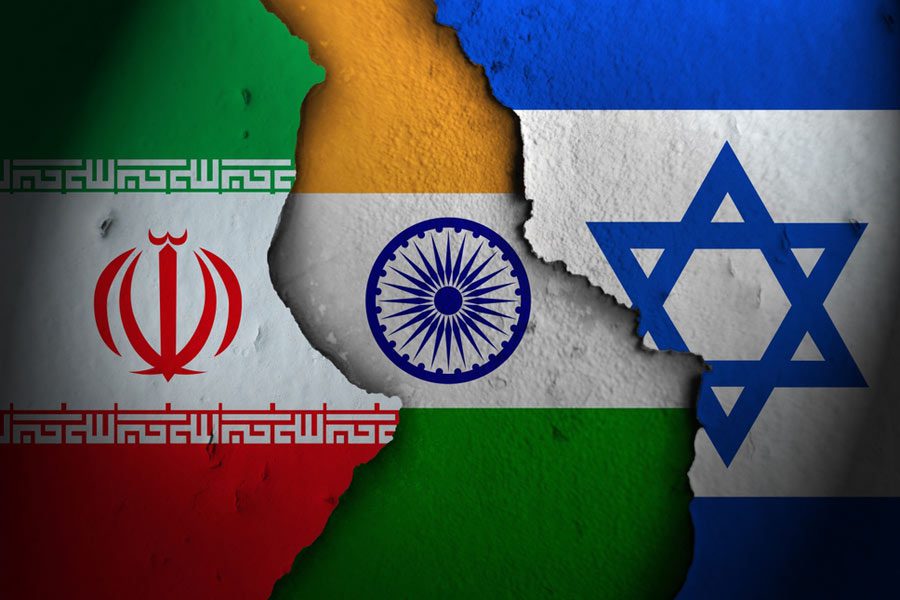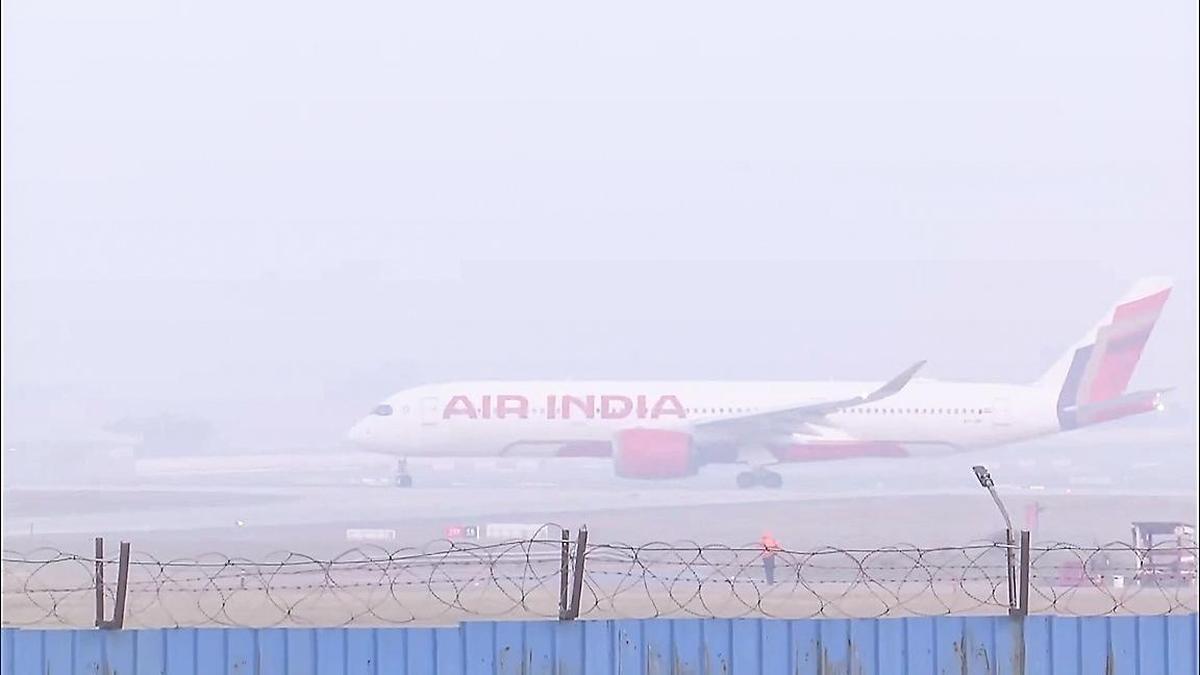Iran Israel War News – Indian Stock Market News
How will Iran Israel war affect Indian stock market?
The recent escalation of tensions between Iran and Israel has sent shockwaves through global financial markets, with the Indian stock market feeling the tremors. This blog dives deep into the potential impact of the Iran-Israel war news on the Indian economy and its stock market performance.

Understanding the Conflict: A Brewing Storm
The simmering tensions between Iran and Israel have a long and complex history. Recent events, including alleged attacks on Israeli ships and the seizure of an Iranian cargo vessel, have further strained relations. The Iran-Israel war news has dominated headlines, raising concerns about a potential full-blown conflict in the volatile Middle East region.
The Indian Stock Market: A Web of Vulnerabilities
The Indian stock market is a complex ecosystem susceptible to various domestic and international factors. The Indian stock market news is often influenced by global oil prices, currency fluctuations, and investor sentiment. Given India’s dependence on imported oil, a conflict in the Middle East can significantly disrupt supply chains and push oil prices upwards.
Potential Impacts: A Multi-Pronged Attack
Here’s a breakdown of how the Iran-Israel war could potentially impact the Indian stock market:
-
Surge in Oil Prices: A full-blown war could disrupt oil production and exports from the Middle East, leading to a global supply shortage. This, in turn, could trigger a significant rise in crude oil prices. Indian stock market news would likely reflect this rise, impacting sectors like transportation, logistics, and manufacturing that rely heavily on oil.
-
Currency Volatility: The Indian Rupee is often sensitive to global uncertainties. The Iran-Israel war news could lead to increased volatility in the currency market, causing the Rupee to depreciate. A weaker Rupee can make imports more expensive, further fueling inflation and impacting investor confidence in the Indian economy.
-
Risk Aversion and Capital Flight: In times of war, investors tend to become risk-averse, seeking safer havens for their capital. This could lead to a flight of capital from emerging markets like India, impacting the liquidity and overall performance of the stock market.
-
Impact on Specific Sectors: While some sectors might experience negative effects, others could see a temporary boost. Defense stocks could potentially rise due to increased military spending. Additionally, companies involved in alternative energy sources might benefit from a shift away from dependence on Middle Eastern oil.
Market Response: A Delicate Dance
The immediate response of the Indian stock market to the Iran-Israel war news will depend on the severity and duration of the conflict. A limited skirmish might cause a temporary dip, while a prolonged war could trigger a more significant decline. Indian stock market news will closely track developments and investor sentiment throughout the crisis.
Expert Opinions: Weighing the Risks
Financial experts offer a range of perspectives on the potential impact. Some believe that India’s diversified economy can withstand the initial shock, while others warn of a prolonged period of instability. Indian stock market news will likely include analyses from various experts, helping investors navigate the uncertainty.
)
Investor Strategies: Weathering the Storm
Investors should remain cautious and adopt a well-diversified portfolio to mitigate risk. How will Iran Israel war affect Indian stock market? The answer lies in a combination of staying informed through Indian stock market news, maintaining a long-term perspective, and potentially adjusting investment strategies based on market movements.
Beyond the Market: A Ripple Effect on the Economy
The impact of the Iran-Israel war could extend beyond the stock market. Rising oil prices could lead to higher inflation, impacting the purchasing power of consumers and potentially slowing down economic growth. Additionally, disruptions in global trade could affect Indian exports and imports, further impacting the economy.

A Call for Peace: Mitigating the Damage
The most desirable outcome is a peaceful resolution to the conflict. Diplomatic efforts should be prioritized to prevent a full-blown war and its devastating consequences for the global economy, including the Indian stock market.
Historical Precedents: Lessons Learned from Past Conflicts
Looking back, past conflicts in the Middle East offer valuable insights into the potential impact on the Indian stock market. The 1990-91 Gulf War, for example, triggered a sharp rise in oil prices, leading to a temporary dip in the Indian stock market. However, the market recovered relatively quickly as the conflict was contained. Indian stock market news during that period likely reflected this volatile swing.
The 2003 invasion of Iraq also caused a surge in oil prices, impacting the Indian stock market. However, the Indian economy’s resilience and strong domestic growth helped mitigate the long-term effects. These historical examples highlight the importance of considering the specific details of a conflict and its potential duration when assessing its impact on the Indian market.
The Role of Government Intervention
The Indian government can play a crucial role in mitigating the negative effects of the Iran-Israel war on the stock market and the broader economy. Indian stock market news would likely cover any government actions taken. Measures such as strategic use of oil reserves, tax breaks for specific sectors, and measures to stabilize the Rupee can help cushion the blow.
Focus on Domestic Growth: Building Resilience
India’s economic growth prospects in the long term will depend on its ability to foster domestic growth and reduce dependence on external factors. Indian stock market news will likely reflect investor confidence in the Indian economy’s fundamentals. Investing in infrastructure development, promoting domestic manufacturing, and encouraging innovation can all contribute to a more resilient economy less susceptible to global shocks.

The Importance of Diversification: Spreading the Risk
Investors seeking to navigate the uncertainty surrounding the Iran-Israel war should prioritize diversification within their portfolios. This can involve investing in a mix of asset classes, including stocks, bonds, real estate, and gold. How will Iran Israel war affect Indian stock market? The answer lies partly in how well investors have diversified their holdings. Diversification helps spread risk and provides a safety net during periods of market volatility.
Exploring Alternative Investments: Beyond Traditional Assets
Beyond traditional asset classes, investors can explore alternative investment options like gold, commodities, and infrastructure funds. These alternatives can offer a hedge against inflation and market downturns associated with the Iran-Israel war. Indian stock market news might include mentions of these alternative investments as the situation unfolds.
The Rise of Fintech: Tools for a Volatile Market
The rise of financial technology (Fintech) has provided investors with new tools to navigate volatile markets. Online platforms offer real-time market data, portfolio management tools, and access to robo-advisors that can help make informed investment decisions based on individual risk tolerance. Indian stock market news might also highlight how Fintech can be used during such times.
The Power of Information: Staying Ahead of the Curve
In a market impacted by Iran-Israel war news, staying informed is crucial. Investors should rely on credible sources for news and analysis, such as reputable financial publications, expert commentaries, and government economic reports. Indian stock market news from trusted sources will provide valuable insights and help investors make informed decisions.
Building Emotional Resilience: Managing the Psychological Impact
The emotional aspects of market volatility should not be underestimated. News of war and rising oil prices can trigger anxiety and lead to irrational investment decisions. Investors should focus on long-term goals, maintain a disciplined approach, and avoid making knee-jerk reactions based on short-term fluctuations.
Seeking Professional Guidance: When in Doubt, Consult an Expert
Financial advisors can offer valuable guidance to investors navigating the uncertainties surrounding the Iran-Israel war. An experienced advisor can help assess individual risk tolerance, create a diversified portfolio, and develop a personalized investment strategy tailored to weather the storm. Indian stock market news might also recommend consulting financial advisors for personalized advice.

The Importance of Long-Term Perspective: A Marathon, Not a Sprint
While the short-term impact of the Iran-Israel war on the Indian stock market might be significant, investors should maintain a long-term perspective. Historically, the Indian stock market has demonstrated its ability to recover from crises and resume its growth trajectory. Focusing on long-term goals and maintaining a disciplined investment strategy can help investors weather the storm and achieve their financial objectives.
A Call for Investor Education: Empowering Individuals
The Iran-Israel war highlights the importance of investor education. Educating individuals about financial markets, risk management, and investment strategies can empower them to make informed decisions during periods of volatility. Increased financial literacy can lead to a more stable and informed investor base, which ultimately benefits the entire Indian stock market.
Quantifying the Uncertainty: Potential Impacts of Iran-Israel War on the Indian Stock Market
The Iran-Israel war news has cast a shadow of uncertainty over the Indian stock market. While predicting the precise impact is impossible, analyzing historical data and expert opinions can offer some quantitative insights. Here’s a breakdown of potential scenarios and correction percentages:
Scenario 1: Limited Conflict (Short-Term Skirmish)
- Impact: In a scenario of a limited conflict, like a short-term skirmish, the initial reaction might be a 5-10% correction in the Indian stock market. This dip could be attributed to knee-jerk reactions from risk-averse investors.
- Recovery: Indian stock market news would likely report a swift recovery within weeks if the conflict is contained quickly. The market’s resilience and strong domestic growth drivers could propel a rebound.
Scenario 2: Protracted Conflict (Extended War)
- Impact: A prolonged war could trigger a more significant correction, potentially reaching 15-20%. Rising oil prices, currency volatility, and risk aversion could lead to sustained market weakness.
- Recovery: The path to recovery would be slower and more dependent on the duration and severity of the conflict. Indian stock market news would likely reflect investor sentiment as the situation unfolds.
Quantitative Factors to Consider:
- Oil Price Sensitivity: A 10% increase in global crude oil prices could translate to a 2-3% decline in the Indian stock market. This is due to the impact on inflation, transportation costs, and corporate profitability across various sectors.
- Exchange Rate Fluctuations: A weakening Rupee can negatively impact foreign investor sentiment and potentially lead to a 1-2% decline in the stock market.
Sectoral Impacts:
- Losers: Oil & Gas, Transportation, Logistics, and Manufacturing could face pressure due to rising input costs.
- Winners: Defense, Renewable Energy, and Gold could experience a temporary boost due to increased demand or safe-haven status.
Historical Precedents:
- The 1990-91 Gulf War caused a 10% correction in the Indian stock market, but it recovered within months.
- The 2003 Iraq War triggered a 7% dip, followed by a gradual recovery. These examples highlight the market’s ability to bounce back after short-term shocks.
Additional Considerations:
- Government Intervention: The Indian government’s response can significantly influence the market. Strategic use of oil reserves, fiscal stimulus measures, and interventions to stabilize the Rupee can mitigate the negative effects.
- Global Economic Conditions: The overall health of the global economy will also play a role. A strong global economic backdrop can help cushion the blow for the Indian market.
Investing Strategies for Uncertain Times:
- Diversification: Spread investments across sectors and asset classes to mitigate risk. Consider including gold, bonds, and alternative investments.
- Long-Term Perspective: Don’t panic sell. Maintain a long-term investment horizon and focus on your financial goals.
- Invest in Quality: Focus on fundamentally strong companies with solid financials that can weather market volatility.
- Stay Informed: Monitor Indian stock market news from credible sources and consult a financial advisor for personalized guidance.

Conclusion:
While the Iran-Israel war presents a significant risk factor, the Indian stock market has a history of resilience. By understanding the potential impacts, adopting a well-diversified strategy, and maintaining a long-term perspective, investors can navigate the uncertainty and potentially emerge stronger on the other side. Remember, this is a complex situation with numerous variables at play. The actual impact on the Indian stock market will depend on the evolving dynamics of the conflict and global economic conditions.
Disclaimer:
The information contained in this blog post is for informational purposes only and should not be construed as financial advice. Stock markets are inherently volatile and carry significant risk. Investors should always conduct their own research and due diligence before making any investment decisions. Consulting with a qualified financial advisor is strongly recommended.
While this blog post strives to be accurate and up-to-date, it does not guarantee the correctness of any information presented. News and events can change rapidly, and the impact of the Iran-Israel war on the Indian stock market remains uncertain.
More on Iran Israel War and Indian Stock Market:
- https://www.theguardian.com/world/live/2024/apr/15/middle-east-crisis-live-news-iran-drone-attack-israel-latest-updates
- https://www.ndtv.com/world-news/deconstructing-irans-massive-missile-attack-on-israel-10-points-5448430
- https://timesofindia.indiatimes.com/world/middle-east/israel-iran-war-live-updates-israel-hamas-war-gaza-news-air-drone-strike/liveblog/109319631.cms
- https://www.bbc.com/news/business-68812949
- https://www.cnbc.com/2024/04/14/oil-prices-are-set-to-rise-as-market-braces-for-israel-response-to-irans-missile-and-drone-barrage.html
- https://www.moneycontrol.com/stocksmarketsindia/
- https://timesofindia.indiatimes.com/business/india-business/stock-market-crash-today-bse-sensex-nifty50-april-15-2024-dalal-street-indian-eqities-earnings-season-us-economic-data/articleshow/109298584.cms
- https://www.livemint.com/market/stock-market-news/why-is-india-stock-market-down-today-explained-with-5-reasons-11713153938923.html
- https://www.moneycontrol.com/news/business/stocks/stock-market-live-sensex-nifty-50-share-price-gift-nifty-latest-updates-15-04-2024-liveblog-12638451.html
- https://www.hindustantimes.com/business/will-israel-iran-tensions-impact-indian-stock-market-what-experts-said-101713139666449.html
For more business and geopolitical news: https://waddupindia.in/category/business/







3 thoughts on “How Iran Israel War News Rocks the Indian Stock Market – Indian Stock Market News – 16th April 2024”
Thanks for sharing. I read many of your blog posts, cool, your blog is very good.
I don’t think the title of your article matches the content lol. Just kidding, mainly because I had some doubts after reading the article.
Thank you for your sharing. I am worried that I lack creative ideas. It is your article that makes me full of hope. Thank you. But, I have a question, can you help me?